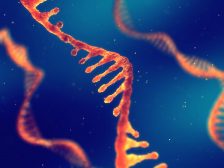Definition
noun, plural: monocytopoieses
The hematopoiesis of monocytes
Supplement
Hematopoiesis is the process of forming new blood cellular elements in vertebrates. The process starts at hemocytoblast, which is a multipotent hematopoietic stem cell. It gives rise to both lymphoid and myeloid stem cells. The myeloid stem cells, in particular, are progenitor cells that give rise to monocytes (as well as to granulocytes, erythrocytes and megakaryocytes). Hematopoiesis leading to the production of a monocyte is referred to as monocytopoiesis.
Monocytopoiesis is comprised of the following stages:
(1) A hemocytoblast (a multipotent hematopoietic stem cell) gives rise to a common myeloid progenitor cell (CMP).
(2) The CMP gives rise to CFU-GM, which in turn gives rise to CFU-M (the colony forming unit that leads to the formation of monocytes).
(3) The CFU-M develops into a monoblast (a committed progenitor cell considered as the largest blast in the hematopoietic cell line).
(4) The monoblast develops into promonocyte, which is relatively smaller than monoblast but with a ceribriform nucleus due to nuclear indentations and folds.
(5) The promonocyte matures into a monocyte when it migrates to the peripheral blood.
A monocyte is a differentiated white blood cell that is involved primarily in immune response, such as phagocytosis, antigen presentation, and cytokine production.
See also:
- hematopoiesis
- hemocytoblast
- common myeloid progenitor cell
- monoblast
- promonocyte
- monocyte







